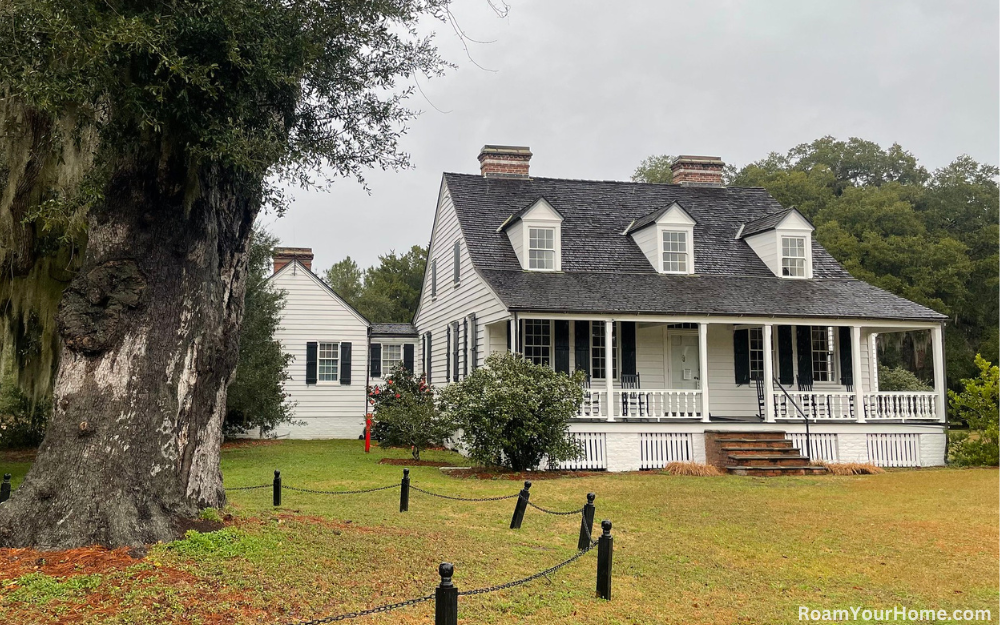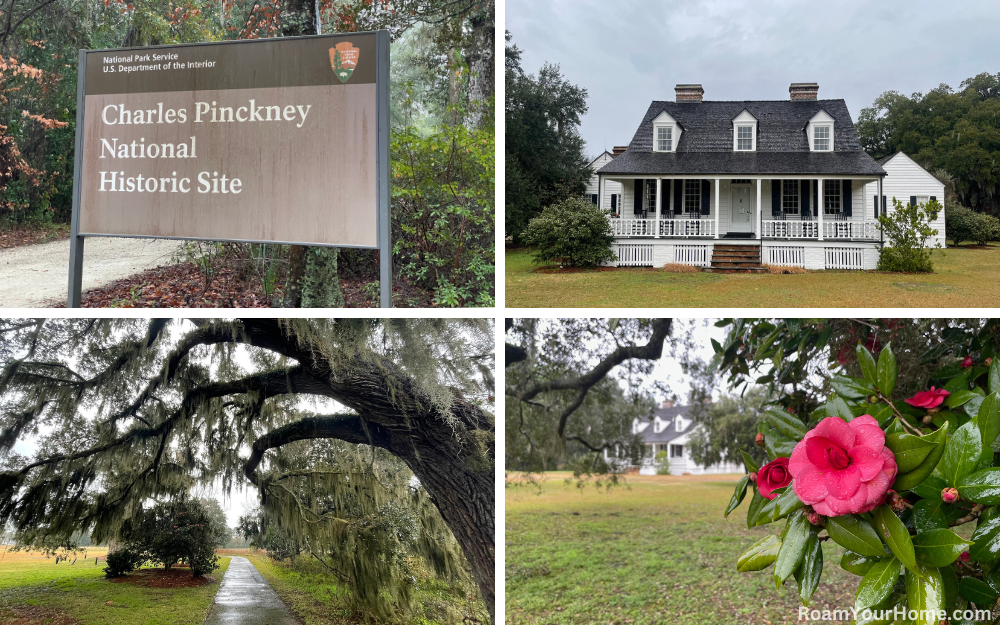
Charles Pinckney: The Forgotten Founding Father
When asked to name some founding fathers of the United States of America, no doubt many names would come to mind. Many would recite George Washington, John Adams, Thomas Jefferson, James Madison, Alexander Hamilton, Benjamin Franklin, and others without hesitation. These names represent the giants in American history—the framers… the men who built a nation.
There is one name that should be mentioned in the same breath as these men: Charles Pinckney of South Carolina, the forgotten founder. Pinckney was one of the principal authors of the United States Constitution and served as the de facto political leader in South Carolina for more than four decades.
Visit the Charles Pinckney National Historic Site
Today, Pinckney is memorialized with a little visited or known National Park Service site. The Charles Pinckney National Historic Site is located about a half-hour drive from downtown Charleston. The hours the park is open can vary; make sure to check the NPS website before planning a visit. The park preserves Snee Farm, which was one of his plantations. Visitors will have the opportunity to learn about the life and legacy of Pinckney, his political influences, the plantation operation, and the African Americans he enslaved.
Twenty-eight of the original 715 acres are preserved within the historic site. There is a half-mile nature trail with numerous exhibits along the way as it weaves through the wetlands of the plantation. There is a visitor center and several films that visitors can enjoy. If you time it right, you can also tour the historic home.
When I visited, it was a cloudy late January morning. It had been raining off and on, and it was a bit chilly outside. His home was not open for tours that day, so I explored the grounds, which were incredible by themselves. Walking around, it was like having the park to myself. I did not see any other people. There were a variety of signs on the property explaining more about Pinckney and the plantation.

A Brief History of Charles Pinckney
Charles Pinckney was born on October 26, 1757, amongst South Carolina’s plantation elite. From a young age, he was educated and pushed toward a life of public service. It’s a calling he would answer for 42 years. During that time, he held many local, state, and national offices. He was admitted to the bar at the age of 21 and would go on to fight in the Revolutionary War under his father, Colonel Pinckney, who was the commander of the Charles Town Militia. Both would eventually be captured and taken prisoners of war by the British.
After his release, he returned home to South Carolina in 1783; after his father’s death, he inherited Snee Farm.
His military service, imprisonment by the British, and known status as a “Patriot” set the stage for his jump into national politics. At the age of 26, Pinckney was selected to represent South Carolina in the Fifth Continental Congress (1784-1787). He was not only one of the youngest members but also one of its most vocal. A skilled orator, he argued for a strong central central government and railed against the weakness of the Articles of Confederation.
In the spring of 1787, Pinckney presented his own draft of the Constitution. Sadly, a full draft of the original “Pinckney Plan” has been lost to history. In 1818, at James Madison’s request, Pinckney provided him with a version that was “substantially the same.” Today, historians credit Pinckney with more than two dozen clauses in the United States Constitution, some of which lay the very foundation upon which our nation is built. The significant amount of contributions earned Pinckney the nickname “Constitution Charlee.”
“I always loved politics, and I find as I grow older, I become more fond of them.” ~ Charles Pinckney
Charles Pinckney’s contributions to the United States Constitution.
- The Legislature shall consist of a House and a Senate
- Only the House shall have the power of impeachment
- The Legislature shall have the power to raise an army and a navy
- A single chief executive, called the President, shall be established
- The President shall inform the Legislature of the conditions of the nation (State of the Union)
- The President shall serve as the Commander-in-Chief of the Army and Navy
- No state shall keep troops or warships during peacetime
- No state shall coin money
- No state can enter into a treaty
- A Citizen’s Bill of Rights
- The elimination of religious testing as a qualification to hold office (Separation of Church and State)
Pinckney would go on to serve in a wide variety of government positions. A four-term Governor of South Carolina, U.S. Senator, and U.S. Representative were among his many titles.
In 1818, Pinckney had been out of politics for a while. He was convinced to run for Congress because, as the recognized leader of South Carolina’s Democratic-Republican Party, he was billed as the only one who could prevent the Federalists from winning Charleston’s seat in Congress.
It was during this term that the Missouri Compromise was passed. Pinckney, who owned slaves his entire life, was opposed. The Snee Farm was home to anywhere from 18 to nearly 60 slaves during his ownership. Pinckney, then considered an elder statesman and one of the last founding fathers, delivered a speech outlining the views of the framers at a Constitutional Convention concerning slavery, which read in part:
“The intention was to give Congress a power, after the year 1808, to prevent the importation of slaves… it was an agreed point, a solemnly understood compact, that, on the Southern States consenting to shut their ports against the importation of Africans, no power was to be delegated to Congress, nor were they ever authorized to touch the question of slavery; that the property of the Southern States in slaves was to be as sacredly preserved, and protected to them, as that of land, or any other kind of property in the Eastern States were to be to their citizens”
He went on to lament he was fighting a losing battle and lecture Congress that the issue of slavery could tear the Union apart into Civil War. 41 years later, his prophecy proved true when his South Carolina seceded from the Union, with the American Civil War erupting less than one year later.
After his term in the 16th Congress ended, Pinckney retired from politics. He died on October 29, 1824. His final resting place is Saint Philip’s Episcopal Church Cemetery, Charleston.



